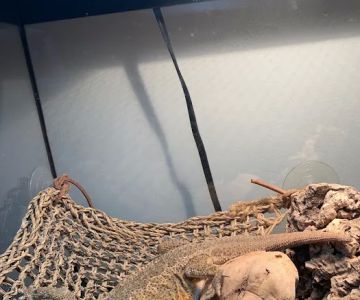- 1-understanding-fleas-in-birds
- 2-common-signs-of-fleas-in-birds
- 3-effects-of-flea-infestation-on-bird-health
- 4-real-life-cases-of-flea-infestation-in-birds
- 5-effective-treatment-and-prevention
- 6-finding-professional-help-and-products
1. Understanding Fleas in Birds
Fleas are common external parasites that can infest birds, causing discomfort and health issues. Unlike typical pets like cats or dogs, bird flea infestations are less talked about but equally important to address promptly. Recognizing the presence of fleas on your birds early can prevent serious complications and ensure their well-being.
1.1 What Are Bird Fleas?
Bird fleas are small, wingless insects that feed on the blood of birds. They often reside in feathers and nests, making detection challenging but essential for healthy avian care.
1.2 How Fleas Affect Birds Differently
Due to birds’ unique anatomy and feather coverage, fleas can cause irritation, feather damage, and stress more intensely than in mammals. Understanding these differences helps bird owners respond effectively.
2. Common Signs of Fleas in Birds
Spotting fleas on birds requires careful observation. Here are the key signs to look for:
2.1 Excessive Scratching and Preening
If your bird is scratching more than usual or aggressively preening, it may be trying to relieve flea bites and irritation.
2.2 Visible Fleas or Flea Dirt
Though tiny, fleas or their droppings (flea dirt) might be seen near the base of feathers or around the vent area upon close inspection.
2.3 Feather Damage and Loss
Infested birds may exhibit broken feathers, bald spots, or ruffled plumage due to constant irritation.
2.4 Restlessness and Behavioral Changes
Birds suffering from fleas often become restless or display unusual behavior, indicating discomfort or stress.
3. Effects of Flea Infestation on Bird Health
Left untreated, flea infestations can severely impact bird health:
3.1 Anemia and Weakness
Heavy flea feeding can lead to blood loss, causing anemia, lethargy, and in severe cases, life-threatening conditions.
3.2 Secondary Infections
Continuous scratching may cause skin wounds that get infected, requiring veterinary intervention.
4. Real-Life Cases of Flea Infestation in Birds
One parrot owner noticed her bird’s increased scratching and dull feathers. After a vet visit, fleas were confirmed, and prompt treatment restored the bird’s health within weeks. This story highlights the importance of recognizing signs early and seeking professional care.
Another case involved a small aviary where multiple birds showed restlessness and feather loss. Implementing a thorough cleaning and flea control regimen helped resolve the infestation and improve the flock’s well-being.
5. Effective Treatment and Prevention
Treating fleas in birds requires safe, bird-specific products and environmental management:
5.1 Veterinary-Recommended Treatments
Consult avian veterinarians for suitable flea treatments, as many pet flea products are toxic to birds.
5.2 Regular Cleaning of Cages and Bedding
Frequent cleaning reduces flea habitats, preventing reinfestation.
5.3 Natural Remedies and Supplements
Some bird owners use natural oils or supplements to boost bird health and repel parasites, but these should be used under veterinary guidance.
6. Finding Professional Help and Products
If you suspect your bird has fleas, reaching out to professionals is crucial. Hidden Brook Veterinary offers expert guidance, safe treatment options, and quality products to protect your feathered friends effectively.
Early detection of signs of fleas in birds combined with appropriate care ensures a happy, healthy pet. Trust professionals and reliable sources like Hidden Brook Veterinary to provide the best support in maintaining your bird’s wellness.











